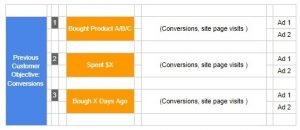Researchers submitted 83,000 fake job apps to see if the biggest U.S. companies discriminate. Here’s what they found
This week, the researchers revealed the names of the companies that discriminated most against Black or female applicants in their study.
In 2021, a group of researchers published the results of a wide-ranging experiment they had conducted to examine the hiring practices of leading employers across the country. Over the course of two years, they submitted more than 83,000 fake job applications for 11,000 entry-level positions at more than a hundred of the largest U.S. companies by revenue. The researchers sent in nearly identical sets of applications with names that were “distinctively Black” or “distinctively white”—as well as names that were gendered—to test for discriminatory hiring practices.
When the researchers first presented their findings, they withheld the names of the companies in question but shared that, on average, Black candidates did hear back from prospective employers less frequently. Much of the discrimination was, however, concentrated in certain industries—namely, auto and retail—and among a select group of companies.
This week, the researchers finally revealed company names and created a “discrimination report card,” which disclosed that two auto companies—AutoNation and Genuine Parts—had the highest rates of discrimination against Black applicants. (AutoNation did not respond to a request for comment. A spokesperson for Genuine Parts said In a statement, “We are always evaluating our practices to ensure inclusivity and break down barriers, and we will continue to do so.”)
On the other end were companies including Kroger, Target, and FedEx, which researchers found had relatively low rates of discrimination. The vast majority of employers were somewhere in the middle, though researchers did find that some prominent companies within that group—such as Costco and CVS—were more likely to show a preference for white applicants.
When reached for comment, a CVS spokesperson told Fast Company, “Ensuring diversity in our hiring practices is a high priority. We are focused on hiring, developing, and retaining a talented workforce that represents and reflects the diversity of our customers, patients, and communities we serve. The study highlights an area that we already address: ensuring that a diverse slate of candidates have opportunities to succeed.” (Costco did not respond to a request for comment.)
In terms of gender-based discrimination, the findings seemed to support previous research that indicates gender disparities are less common at entry level (though other studies suggests that it doesn’t take long for them to arise). Researchers found that on average, companies did not show a preference for candidates on the basis of gender.
But there were a handful of exceptions: JPMorgan Chase and Honeywell were among the employers that favored male applicants the most, along with the manufacturer Builders FirstSource and auto company LKQ. (On the whole, in fact, manufacturing companies were more likely to show a bias for male applicants.) The apparel retailers Ascena and VF Corporation—parent companies of Ann Taylor and The North Face, respectively—showed the strongest preference for female applicants, as did Nationwide and real estate firm CBRE. When employers did exhibit gender bias, it was more extreme compared to the rates of race-based discrimination.
In a statement to Fast Company, a Honeywell spokesperson said the company was “committed to inclusion and diversity, including gender diversity, across the organization—a commitment that begins with our hiring process.” Honeywell also cited its requirement that hiring managers “interview at least one diverse candidate for each exempt role in the U.S.,” as well as the company’s “strong partnerships” with affinity groups for Black and female engineers. “These are part of our broader efforts that help us consistently select the right person for the right role,” the spokesperson added.
A JPMorgan Chase spokesperson pointed to the company’s diversity metrics. “As of December 2023, women represented 49% of our workforce across globally and 41% of our Operating Committee. We remain committed to investing in the recruitment, advancement, and retention of women at all levels, and particularly at senior levels.” (Builders FirstSource, LKQ, Ascena, VF Corporation, Nationwide, and CBRE did not respond to requests for comment.)
The researchers themselves offer a disclaimer, emphasizing that the study doesn’t provide a full picture of hiring discrimination; flagging the sample size of job listings, which could have skewed the rates of discrimination against Black applicants. Its scope is limited by the focus on entry-level jobs, too—and as the New York Times noted, the study may actually underestimate the bias against Black applicants by not capturing the higher rates of discrimination at smaller companies.
The study also does not explore hiring discrimination against other underrepresented groups. (The researchers did include a subset of applications intended to test for discrimination on the basis of age and gender identity, but the results were less conclusive.) Still, the findings do offer a snapshot of how bias can creep into the hiring process from the very beginning, putting Black workers at a marked disadvantage in certain industries.
It’s possible that some companies have altered their hiring practices in the years since the experiment was conducted—though many employers have actually pulled back on DEI initiatives in that time, especially in the aftermath of the Supreme Court ruling on affirmative action.
Either way, the study seems to indicate that some of the DEI practices that have become common across corporate America (hiring a chief diversity officer, for example) don’t necessarily result in lower rates of hiring discrimination at the entry level. What did seem to have more of an impact, however, was whether a company had a more formalized hiring process—likely because there were several checks and balances in place to combat individual biases.
ABOUT THE AUTHOR
(7)
Report Post




